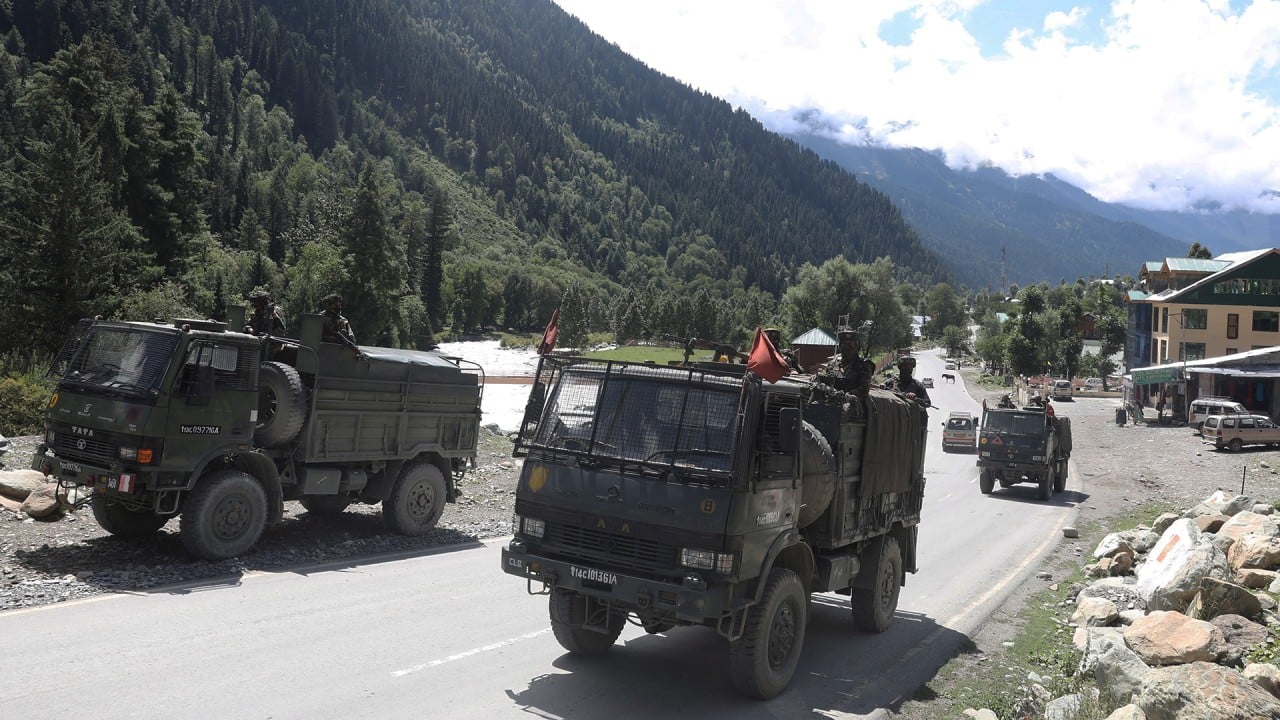
Ukraine war: how India-China cooperation can help remove nuclear threat and ease tensions between US and Russia
- Even as border disputes and other issues remain unresolved, Asia’s two major powers have a mutual interest in bringing about a ceasefire in Ukraine and ending the threat of nuclear war
At the time, Chinese troops moved into areas along Pangong Lake that are part of the Indian claim line. This was a violation of the 1993 agreement to maintain peace and tranquillity along the LAC.
Wang’s visit to India did not lead to any breakthroughs in the territorial dispute, but neither was there a breakdown in the troubled bilateral relationship. The subtext was that China is keen to set the territorial dispute aside and resume engagement on other tracks.
However, India remains steadfast in seeking complete troop disengagement from the LAC for discussions on de-escalation to take place, something on which China has not budged.
The economic consequences of the Ukraine war and the collective effort it will take to repair and rewire globalisation as it is now understood will be colossal. Both China and India will be buffeted by this turbulence and have to decide how much of their national resources and prestige they wish to expend over relatively barren geography and pursue competition rather than cooperation.
The complex, tangled territorial dispute along the LAC is part of the colonial legacy that the two Asian giants inherited in the late 1940s.
The nuclear strand has come back into focus in the Ukraine war in a disturbing manner, even as the Sino-Indian territorial logjam remains intractable.

China and India have a distinctive locus in relation to the nuclear disequilibrium and US-Russia tensions. It is worth remembering that when Ukraine renounced its nuclear weapons after the disintegration of the Soviet Union in late 1991, the US, Russia and Britain guaranteed Kyiv’s territorial integrity in the 1994 Budapest agreement.
In 2013, soon after President Xi Jinping assumed office, Beijing also became party to this pledge. The statement of 2013 noted that, “China pledges unconditionally not to use or threaten to use nuclear weapons against non-nuclear Ukraine, and under the conditions of Ukraine suffering an invasion using nuclear weapons or suffering the threat of such kind of invasion, to provide Ukraine with corresponding security guarantees.”
For its part, India played an unusual role in the Korean war that pitted the US and its allies against the Soviet Union, China and North Korea. Washington warned Beijing through Indian Prime Minister Jawaharlal Nehru that the US was prepared to attack Manchurian bases with atomic weapons if China did not sign a truce.
How Russian invasion of Ukraine is stoking global nuclear proliferation
The Hiroshima cloud loomed large and had to be avoided at any cost despite the breakdown in Washington-Moscow relations. Under the aegis of the United Nations, India enabled and steered the establishment of the Neutral Nations Repatriation Commission and was able to broker a cessation of hostilities and a return of prisoners as anxiety over possible superpower escalation receded.
In terms of Russia’s war in Ukraine and the level of violence, Wang’s visit to Delhi indicated that China and India have similar objectives. Jaishankar noted: “We had a common element which was that both of us agreed on the importance of an immediate ceasefire, as well as a return to diplomacy and dialogue.”
If Asia’s two major powers can play an effective role in reducing the current tensions between the US and Russia, bring about a ceasefire and remove the nuclear threat from the table, the citizens of the world will be able to breathe a sigh of relief.
Commodore C. Uday Bhaskar is director of the Society for Policy Studies (SPS), an independent think tank based in New Delhi


